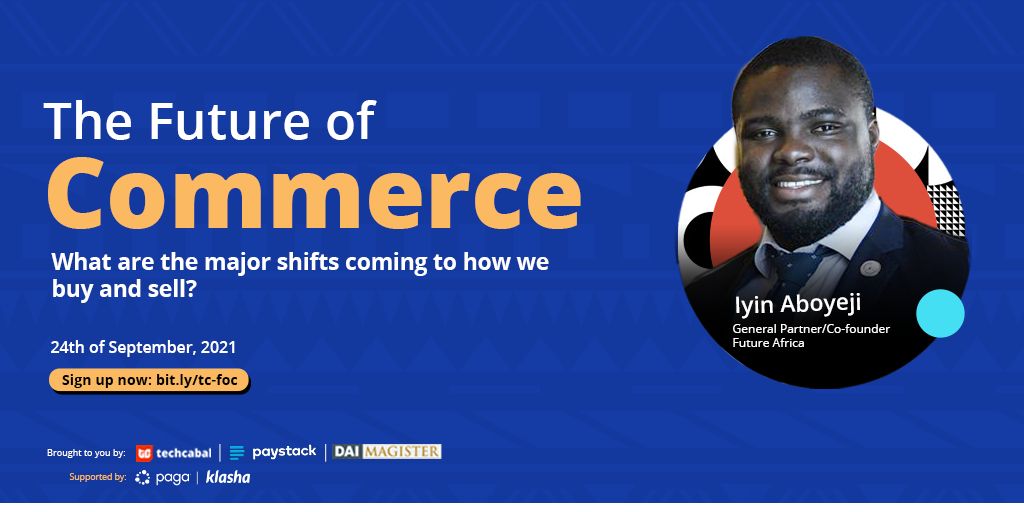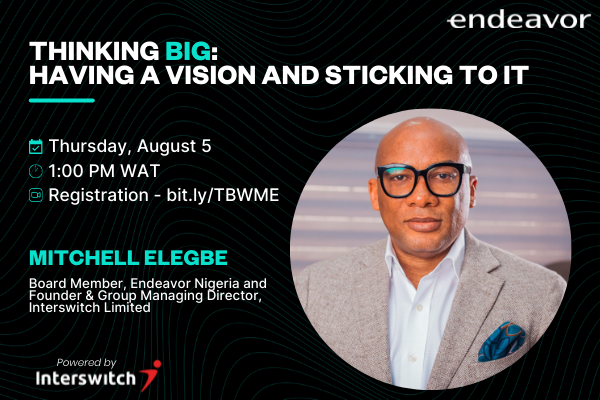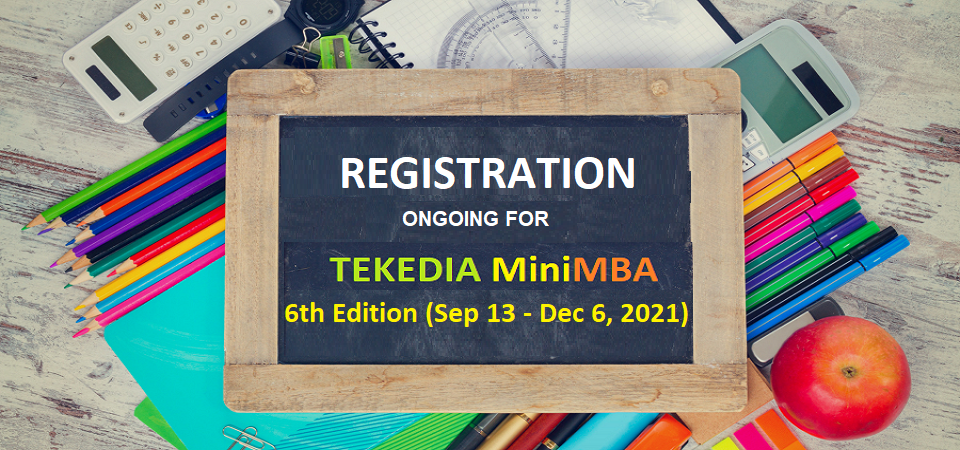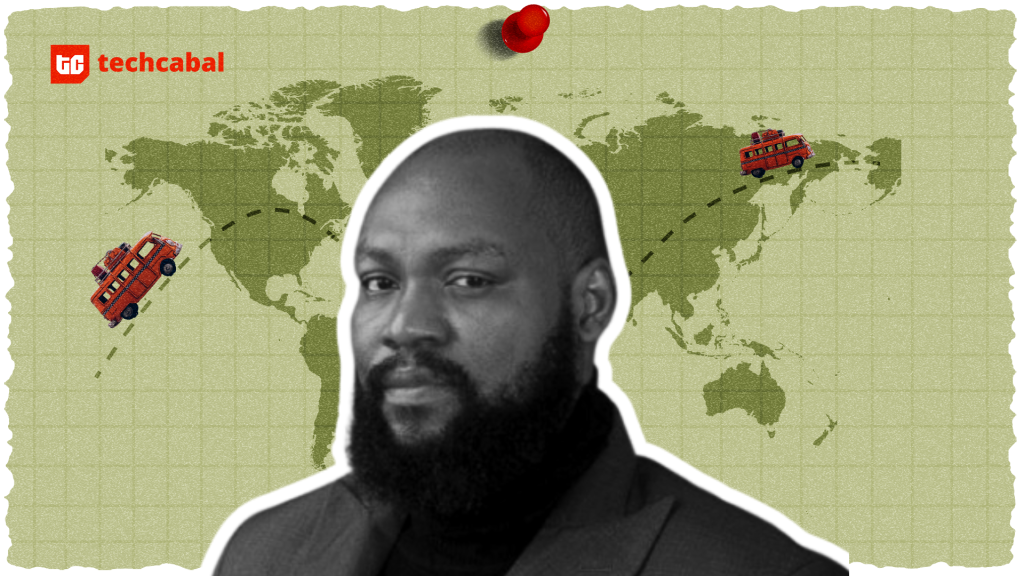
IN PARTNERSHIP WITH



Happy new month ☀️ ️
Some housekeeping to start off the new month. We recently upgraded our email marketing software so TC Daily might land in your promotions, junk or spam folder.
Please move us back to your primary inbox if this happens to you.
In today’s edition:
- Ghana’s tech ecosysytem
- The Future of Commerce
- Quiz
- Vaccinations finally kick off in Tanzania
- TC Insights: Transport Charges
GHANA’S TECH ECOSYSTEM

What’s the first thing that comes to mind when you think of Ghana?
The Ashanti kingdom? Relaxed and easy-going people? Jollof rice wars with Nigerians?
Here’s what pops for us when we hear of Ghana. First, is Twitter setting up its Africa Headquarters in Ghana; next is Google launching its AI lab in Accra.
There’s a lot of interesting things happening in Ghana’s Tech Ecosystem and in July, we went on a journey to explore it. We met with key players on the field and had a literal taste of the economy. 🍴
Here are a few things we learnt.
Funding and what Ghana could do better
There are five countries leading venture capital investment in Africa and in 2020, Ghana displaced Rwanda on the list.
According to Partech Africa’s report, Nigeria is at the top of the list with $307 million in investments while Ghana is fifth with a whopping $111 million.
A snag to venture capitalism in Ghana is the minimum capital requirement all foreign startups must meet. For wholly-foreign startups, the minimum capital is $500,000. For joint ventures between non-Ghanaians and Ghanaians, the minimum is $200,000. Oh and one more interesting bit: both are subject to an increase to $1,000,000 if the venture commences trading activities in Ghana
Understandably, many startups do not have access to that kind of capital.
On the bright side: Nine local startups have raised money this year. Amongst them are BezoMoney, a digital savings platform; Jetstream, which helps African businesses manage their own cross-border supply chains; and a digital farming platform, Complete Farmer.
Daniel Adeyemi did a great job of covering the ecosystem and its prospects in The dawn of Ghana’s tech ecosystem.
Increase your online sales with a Paystack Storefront – a free, beautiful seller page that helps you bring creative ideas to life.
JOIN IYIN ABOYEJI AT THE FUTURE OF COMMERCE
On the 24th of September, Iyin Aboyeji, General Partner and Co-founder at Future Africa will be speaking at the Future of Commerce.
#TCFOC is an exciting opportunity to listen to and learn from key players and industry leaders in tech and commerce in and out of the continent. We’re merging elements of retail, payments, e-commerce, logistics, and cryptocurrency into one fascinating experience. Where the Future of Commerce is concerned, it’s all you can learn.
Speakers like Stephen Deng – Co-founder of DFS Lab, Juliet Anammah, Chairperson at Jumia Nigeria, Ray Youssef – CEO at Paxful, Onyekachi Izukanne – Co-founder/CEO at TradeDepot, and many others will be sharing their perspective on how they see the world of commerce changing over the next few years and how you as a buyer or seller can position yourself right in its centre.
🔔Book your free slot now.
The Future of Commerce is brought to you in partnership with DAI Magister and Paystack and is supported by Paga, Chipper Cash, and Klasha.
🤝Interested in sponsoring? Send an email now to favour@bigcabal.com.
We can’t wait to see you and people in your network join us on the 24th of September, at the Future of Commerce.
See you there!
QUIZ:
Why aren’t Pay-As-You-Go models being implemented by PAY-TV operators like DSTV or StarTimes in Africa?Find the answer at the bottom of this newsletter
Forming a clear vision is believed to be one of the most important things an entrepreneur has to do before starting a business. A startup’s vision is their interpretation of what the world will look like in the future, and how their venture will be part of this future.
Join Endeavor Nigeria on Thursday, August 5 at 1 pm WAT as they host the Group Managing Director/CEO of Interswitch Group and board member at Endeavor Nigeria, Mitchell Elegbe, as he discusses the topic – Having a vision and sticking to it.
Mitchell will be talking about how/why the companies that succeed and endure are almost always the ones that created a clear vision, and then stuck to it.
Register and send in your questions for Mitchell here
VACCINATIONS KICK OFF IN TANZANIA
What’s happening in Tanzania?
Last week, COVID-19 vaccinations began in Tanzania as President Samia Suluhu Hassan took the first vaccination shot during a live ceremony at the State House in Dar es Salaam.
Why is that important?
Well, in the early days of the pandemic, late ex-president John Magufuli downplayed the seriousness of the virus and urged citizens to turn back to God and “pray coronavirus away.”
Tanzanians were encouraged to believe that COVID-19 is a facade or a pick-one-leave-one virus that only infects Godless people.
Amidst the clamor for vaccines by African countries, ex-President Magufuli questioned the safety of the shots and urged Tanzanians to turn to herbal medicines instead. Earlier in February, the press ran a live showing of the Health Minister and her deputies drinking natural concoctions made of ginger, garlic, and lemons (An aside: this sounds delicious though).
What’s changed since then?
The president has, literally.
In March 2021, John Magufuli sadly succumbed to an illness some speculate was COVID. His successor, Samia Suluhu Hassan, became Tanzania’s first female president.
To battle the spread of the virus in the country, she and her officials first have to battle her people’s mindset towards COVID. There’s a worry amongst public health officials that people won’t step up to receive the shots and so a public vaccination of the leader seems like a great start.
If the present mindset was sculpted by a governing administration, surely it can be changed by another one?
Damilare Dosunmu examines Tanzania’s inoculation in Tanzania first female president kicks off COVID vaccinations after year-long denial
I am Prof Ndubuisi Ekekwe and I invite you to register for the 6th edition of Tekedia Mini-MBA (Sept 13 – Dec 6, 2021). It’s online, self-paced, with 3x weekly zoom sessions, and costs ₦50,000 or $140. In the last one, 38 countries were represented. Our 140 faculty members come from Flutterwave, Microsoft, Amazon, Jobberman, Shell, Mastercard, Access Bank, and other great companies. The Bank of Industry has supported our graduates with ₦900 million loans since Nov 2020.
Register today and get early benefits here.
TC Insights: Transport Charges
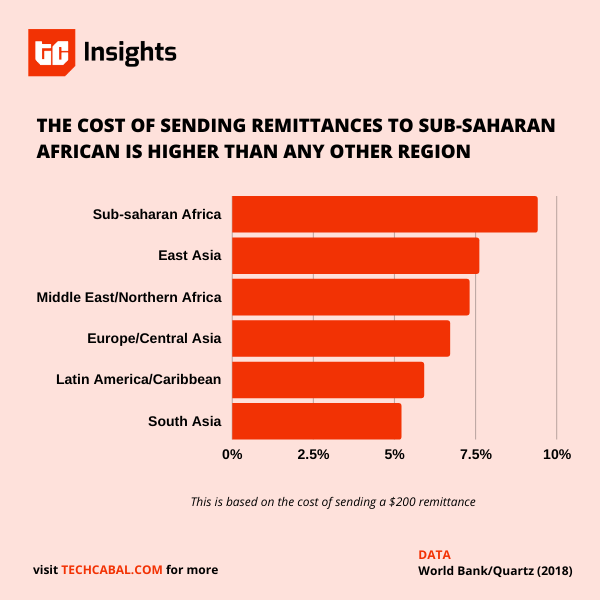
Let’s play a little guessing game. If Akello sends money from the UK to his mum in Kenya and he also sends money to his business partner in the Philippines, which one of these will accrue higher charges?
If you said Kenya, you are most likely to be correct. In the first quarter of 2018, the average cost of sending $200 to anywhere in Sub-saharan Africa was about $19 about 20% than the remittance charges for any other region.
In 2018, Africa received about $65 billion in remittances but the cost of sending that amount is estimated to be about $1.8 billion annually.
Historically, remittance costs have fallen. They fell from 14% in 2008 to about 10% in 2014. There’s no new data to suggest much has changed in the last two years. Since 2015, the average cost has been between 9 – 10%.
Remittances make up 2.5% of Africa’s GDP but they are the lifeblood of the economies in some countries. In Liberia, Comoros, and the Gambia, remittances make up over 20% of GDP.
What the high charges imply is that while remittances make up a huge portion of the income in many African homes, recipients sometimes give up a sizable amount of the money sent to them.
In some cases, senders bear the additional charges. Two of the major reasons for these high remittance charges are bank regulations and exclusive agreements. Bank regulations put in place to check money laundering and terrorism financing drive up administrative costs which affect the cost of remittances. In some cases, the nation’s post office has an exclusive agreement with a money transfer service. And since the post office is more widespread, consumers have no other option. Competition typically drives down costs.
While the rise of crypto has resulted in many businesses using it for cross-border transactions, it is still not widely used for sending home. Much more needs to be done to encourage innovation in remittances.
Get all our reports here and watch videos from our events. Got any research requests? Send them to us here.
QUIZ ANSWER
According to MultiChoice Chief of Operations, John Ugbe, PAYG requires a two-way communication system while most countries are only fitted with one-way systems. A complete remodeling of digital broadcast services is necessary for PAYG to be implemented and this means more costs for everyone. Read more in Nigerian lawmakers want to slash DSTV prices without a clear path on Pay-As-You-Go
JOB OPPORTUNITIES
Every week, TechCabal shares job opportunities in the African ecosystem.
- TechCabal – Senior Editor (West Africa)
- TechCabal – Senior Writer (Africa)
- BambooHR –User Experience (UX) Designer/Researcher (Remote)
- Citibank – Digital Client Support (Kampala, Uganda)
- Stears Data – Technical Team Lead
- The Republic – Social Media Editor (Lagos, Nigeria)
- SafeBoda – VP of Operations
- Global Financial Integrity – Policy Analyst (East and Southern Africa)
There are more opportunities here. If you’d like to share a job opening or an opportunity, please fill this form.
What else we’re reading
- Last week, the Central Bank of Nigeria banned sales of forex to money changers. To address the gap that the ban will create, the apex bank has now directed commercial banks to create mobile apps for foreign exchange.
- In response to The Financial Times, and The Economist’s tacky pieces on the African tech ecosystem, Derin Adebayo wrote a rebuttal we found insightful. Read Responding to shoddy journalism.
- South Africa’s Transnet has been the victim of cyberattacks. Here’s a rundown of what’s been happening on that end in Transnet attack an act of cyber war.
- In this digital age, even haircuts are getting digitized and to that end, a startup, Spire, has just raised $34 million in Series B funding.
- Here’s how Zello kept people connected during South Africa’s unrest.
- Barack Obama has been announced as a minority owner and a strategic partner for NBA Africa. Read more here.










